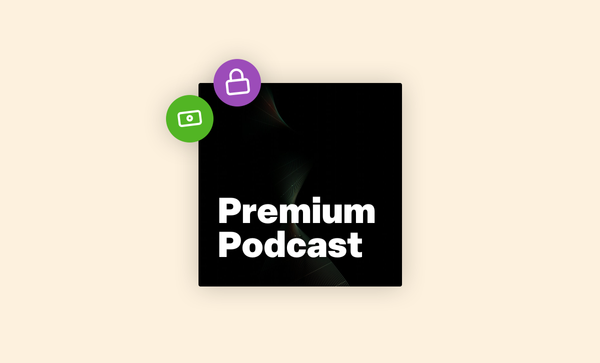Five use cases for an internal company podcast

Private podcasting is a versatile tool that's quietly revolutionising the way organisations engage with their teams.
In this blog post, we'll delve into five compelling use cases for harnessing internal podcasts in your company.
Culture building
A private or internal podcast can serve as a powerful catalyst for culture building within a company. By sharing stories, insights, and values through the engaging medium of audio, organizations can create a more cohesive and connected workforce.
These podcasts allow leaders to articulate the company's mission and values in a relatable and authentic way, providing employees with a deeper understanding of the organization's purpose.
Furthermore, they can showcase the achievements and contributions of team members, fostering a sense of recognition and pride. Through interviews, discussions, and anecdotes, employees can become more than just colleagues; they become part of a community, united by shared experiences and a common vision.
The personal and accessible nature of audio content enables a more profound cultural immersion, making it an indispensable tool for nurturing a vibrant and cohesive company culture.
Employee training and professional development
You can use private podcasts to deliver training materials, industry insights, and professional development content to your employees and colleagues. This approach allows employees to learn at their own pace and revisit information as needed.
The engaging nature of audio content can transform what might otherwise be perceived as mundane training materials into captivating and memorable learning experiences.
From technical skills to soft skills and industry-specific knowledge, internal podcasts can be curated to deliver a wide range of content, making them an invaluable resource for equipping your workforce with the essential skills and knowledge needed to excel in their roles and contribute to your organisation's growth.
Sharing executive insights
An internal podcast featuring leadership is not just a tool for disseminating information; it's a dynamic medium that can breathe life into an organization's vision and strategy.
When company executives take the microphone, they have the opportunity to provide in-depth insights and context about the company's overarching mission and values. By discussing strategic goals, they can paint a vivid picture of where the organization is headed and why it matters.
This in-depth exploration helps employees grasp not only what they need to do but also why their contributions are pivotal to the company's success.
Employees can hear about the challenges and opportunities the company faces, fostering a deeper sense of connection to the larger narrative, and can gain a clearer understanding of the reasoning behind decisions, which promotes transparency and trust.
Consequently, employees feel more informed, engaged, and, most importantly, aligned with the organization's mission and direction. This alignment can fuel motivation, drive innovation, and enhance overall company performance.
Employee onboarding
Employee onboarding is a pivotal process for any organization, setting the stage for new hires' success and integration into the company culture. Podcasts offer a dynamic and effective tool to enhance this crucial experience.
By crafting a series of onboarding podcasts, companies can provide newcomers with a comprehensive and engaging orientation. These audio resources can cover a range of topics, from an introduction to company values and history to insights from senior leaders about the organisation's mission and vision.
Moreover, podcasts can serve as a repository of practical information, offering guidance on company policies, procedures, and the tools necessary for job success.
They enable new employees to learn at their own pace and revisit essential information as needed. Because podcasts can be easily updated, content can stay fresh and relevant, and synced across all listeners.
Ultimately, using podcasts for onboarding fosters a more inclusive, interactive, and digitally forward approach to welcoming new talent, ensuring a smoother transition and a more informed, confident workforce.
Replacing meetings
A company podcast can significantly contribute to reducing the frequency and necessity of meetings within an organization.
By broadcasting important updates, training materials, and key messages via podcasts, companies can eliminate the need for numerous informational meetings. This not only saves time but also allows employees to consume the information at their convenience, fostering greater flexibility and productivity in their schedules.
However, it's crucial to note that while this reduction in meetings streamlines operations and minimises disruptions, it can also result in decreased face-to-face interaction with employees. Meetings often serve as platforms for brainstorming, collaboration, and building relationships, so the complete replacement of meetings with podcasts may compromise some of these interactive benefits. Therefore, companies must strike a balance by using podcasts strategically to complement, rather than entirely replace, meetings, ensuring that vital face-to-face interactions are preserved while lessening the burden of unproductive gatherings.





